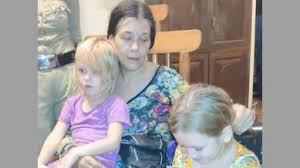The mystery of Nina Kutina: What next for the Russian woman, her kids found in Karnataka forest? 5 questions answered

In the quiet hills of Karnataka’s coastal town of Gokarna, a story unfolded recently that seemed almost unreal. A Russian woman, Nina Kutina, and her two young daughters were discovered living in a forest cave—away from all modern conveniences, disconnected from the world, and far from the gaze of authorities. This astonishing revelation has now led to legal and diplomatic complexities involving immigration rules, child welfare, and a father seeking custody. Here’s a detailed look into the mystery and what lies ahead for the trio.
Who is Nina Kutina?
Nina Kutina is a 40-year-old Russian national who first came to India in 2016. She initially arrived on a business visa, which expired in 2017. After a brief exit and return from Nepal in 2018, she remained in India, undocumented. Instead of returning home, Nina chose to live an off-grid lifestyle. She traveled across Indian states and eventually made her way to Gokarna in Karnataka, where she began residing in caves and forest areas—completely removed from mainstream society.
Her lifestyle wasn’t accidental. Kutina had embraced a spiritual existence—living without gadgets, government documents, or material possessions. According to police and local accounts, she homeschooled her daughters, painted, and meditated while living in harmony with nature. But such a life, especially with minors involved, eventually attracted attention from authorities.
How Were They Found?
It was a routine patrol by the Karnataka police in early July 2025 that led to the discovery. In the landslide-prone Ramatirtha Hills near Gokarna, officers noticed clothing and plastic sheets hanging near a cave. On closer inspection, they found Kutina and her two daughters—Prema (aged 6) and Ama (aged 4)—living inside the cave.
Authorities were surprised to see that the woman and her children were surviving in the wild without any proper shelter, sanitation, or safety. Given the presence of snakes, wild animals, and the risk of monsoon-triggered landslides, police deemed the living conditions extremely dangerous—especially for the children.
The family was then relocated to a local ashram for temporary shelter and subsequently moved to a government-supported women-and-child welfare home.
A Legal Maze: Overstaying Visas and Deportation Process
After their rescue, officials learned that Nina had long overstayed her visa, with no valid immigration papers since 2017. In India, overstaying a visa is a serious offense, and in Nina’s case, her return to the country in 2018 without proper documentation complicated matters further.
Karnataka police, in coordination with the Foreigners Regional Registration Office (FRRO) in Bengaluru, began deportation procedures. The Russian embassy was contacted to verify her identity and facilitate her return. Until the deportation is finalized, Kutina and her daughters are being housed at a designated restriction or detention center.
However, the process isn’t simple. Deportation is costly—travel arrangements, paperwork, and embassy coordination can take weeks. There are also financial constraints; deportees are often required to cover their own travel costs. Without any income or savings, Nina may face delays in being able to leave.
The Father Steps In: A Custody Twist
As the news of Nina’s situation made headlines, her former partner and the father of her daughters came forward. Dror Goldstein, an Israeli businessman, claimed that he had been financially supporting the family and was unaware they had gone completely off the grid. When communication broke down last year, he reportedly filed a missing person’s report.
Goldstein is now seeking shared custody of his daughters and has approached Indian authorities to ensure the children’s welfare. He has expressed concern that deporting them to Russia would permanently separate him from his children. Legal experts suggest his claims may delay or affect the deportation process, as custody issues often take precedence in cases involving minors.
What About the Children?
The daughters, aged four and six, have never lived in Russia. One was born in India and the other in Ukraine. Both children have spent most of their lives in India, possibly qualifying them for residency rights or at least humanitarian protection under Indian child welfare laws.
Their current condition, as per government reports, is stable. Health checkups have been conducted, and they are being looked after at a shelter with medical and educational support. The Karnataka State Child Protection Commission is now closely monitoring their case.
If a court determines that deportation is not in their best interests—especially if the father is present and willing to care for them in India—it may lead to a more nuanced outcome. Legal proceedings on custody are likely to begin soon.
A Complex Path Ahead
The Nina Kutina case is no longer just about immigration. It now involves international diplomacy, parental rights, child protection, and human interest. While Kutina herself seems determined to remain outside the conventional system, her children’s future may not afford that luxury.
If the Russian embassy arranges for their return, and no court stays the process, deportation could happen within weeks. However, if Goldstein’s plea is accepted and custody is awarded or shared, the case could take longer to resolve.
For now, Nina and her daughters remain in temporary state care—awaiting a future that hangs in the balance of bureaucracy, courtroom arguments, and diplomatic coordination.
Final Thoughts
The story of Nina Kutina is both tragic and thought-provoking. It raises important questions about parenting, freedom of lifestyle, legal responsibility, and children’s rights. Can one person’s spiritual choice justify raising children in isolation and danger? Where does freedom end and responsibility begin?
As Indian authorities, child rights advocates, and international diplomats work through the layers of this case, one hopes that the outcome will prioritize the children’s safety, emotional well-being, and connection with both parents—regardless of nationality.






